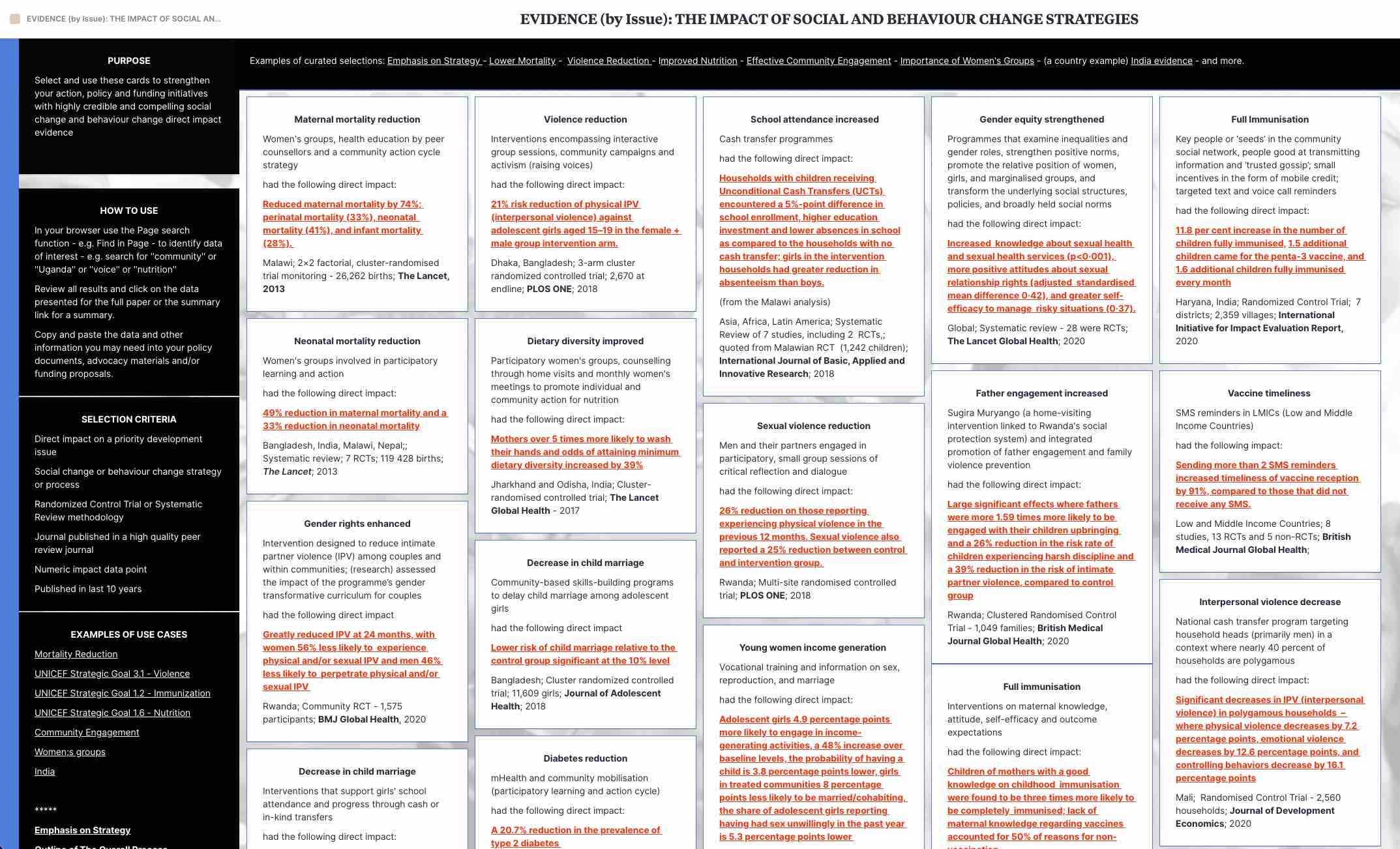Evidence: The Impact Of Social And Behavior Change Strategies
People and organisations engaged in social change and behavior change processes, strategies and actions are often asked: “do they work?’; what is their impact”; “what evidence is there for making a contribution to progress on national and local development goals”; how do they contribute to the struggles to achieve the SDGs” and, other, similar questions.
At the same time we are all seeking to both fund, sustain, expand and grow the social change and behavior change action we are undertaking, and striving to ensure our learning and perspectives are more influential in development policy making be that at local, national, regional or global contexts.
There is a common feeling in our field of work that these two dynamics should be more closely linked. That the availability of more compelling and credible impact data would help facilitate expanded levels of funding success and policy engagement.
UNICEF wanted to take a fresh look at this issue. It asked The Communication Initiative to be involved.
The key driving principles for the work that resulted, and continues, were to identify impact data meeting two requirements: (a) viewed by donors and policy makers as highly credible according to their understanding of what constitutes credibility and (b) supports everyone in our common field of work to review and plan their work in the light of highly credible impact data.
As guidance for identifying high credibility impact data we agreed these criteria:
- Direct impact on a priority development issue – that there is a positive change or trend in a priority development issue.
- Social change or behavior change strategy or process – that there is a direct relationship between a social change and behavior change strategy and that positive change
- Randomized Control Trial or Systematic Review methodology – these are the most credible methodologies for most funders and policy makers (and the ones that they have most difficult arguing against). Alongside qualitative research, they provide highly credible data to inform improved strategies and action.
- Journal published in a high quality peer review journal – the peer review process, particularly in journals that have earned significant respect and are not automatically associated with our field of work, is crucial for establishing credibility and value
- Numeric impact data point – in difficult policy and funding environments a number – eg X% – really helps if only to open doors for more substantive engagement. There is something about a number.
- Published since 2010 – it was regarded as important to have recent research so that the “out of date” or “too old” arguments could not be applied.
You can see an initial compilation of the results from Phase 1 of this work at this link: EVIDENCE: THE IMPACT OF SOCIAL AND BEHAVIOUR CHANGE STRATEGIES
Please note that this is a temporary location. Phase 2 of this work will support an online filtering/shuffling search process and a more engaging/better looking interface. But for that present link above simply scroll through or use your browser “find” process to search for any particular areas of interest.
Last modified: November 1, 2022
Language: English
Source: UNICEF and The Communication Initiative Network
Year of Publication: 2022

